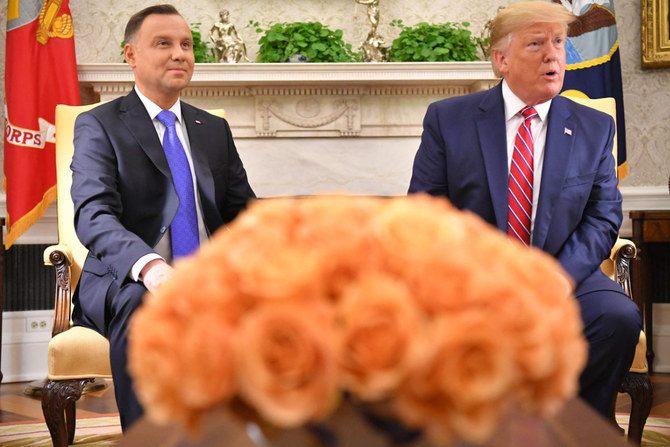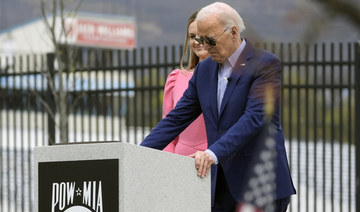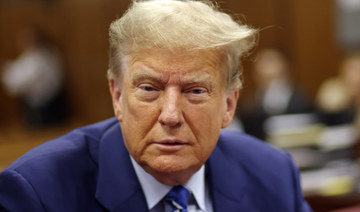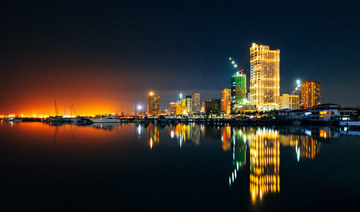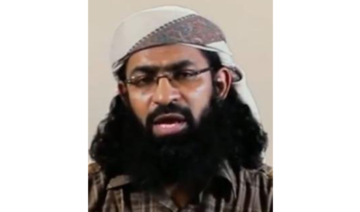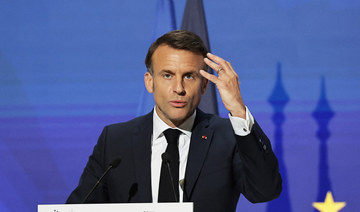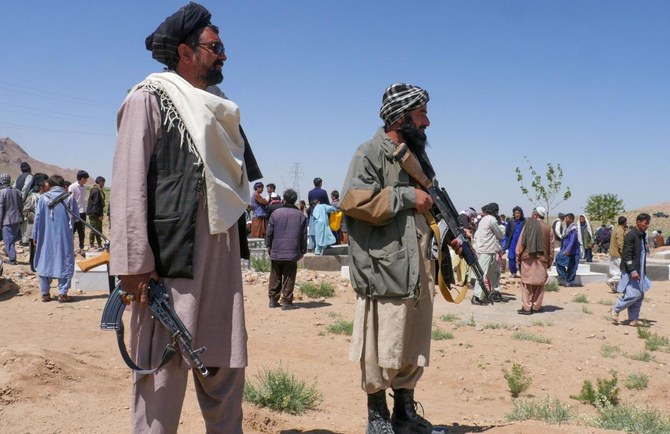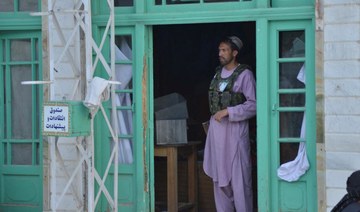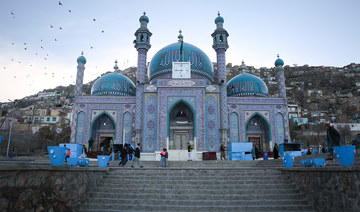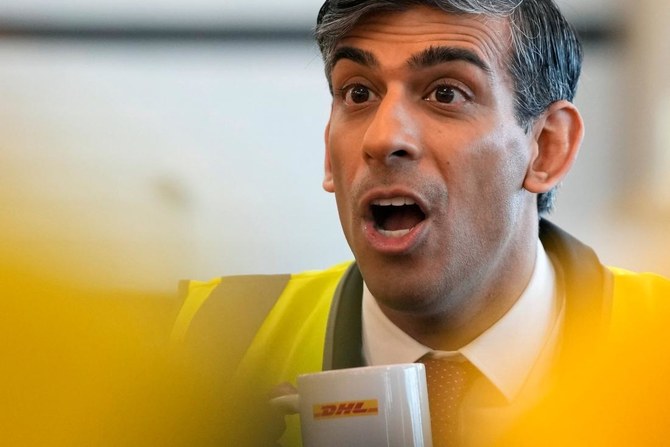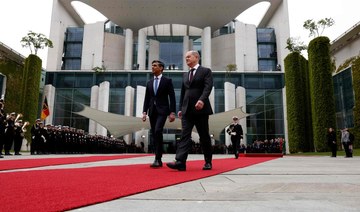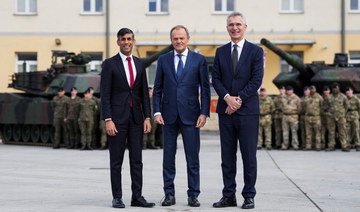NEW YORK: Former President Donald Trump met Wednesday in New York with Polish President Andrzej Duda, the latest in a series of meetings with foreign leaders as Europe braces for the possibility of a second Trump term.
The presumptive Republican nominee hosted Duda for dinner at Trump Tower, where the two were expected to discuss Ukraine, among other topics. Duda, who has long expressed admiration for Trump, is also a staunch supporter of Ukraine and has encouraged Washington to provide more aid to Kyiv amid Russian’s ongoing invasion. That funding has been held up by Trump allies in Congress.
As he arrived, Trump praised the Polish president, saying, “He’s done a fantastic job and he’s my friend.”
“We had four great years together,” Trump added. “We’re behind Poland all the way.”
US allies across the world were caught off guard by Trump’s surprise 2016 win, forcing them to scramble to build relationships with a president who often attacked longstanding treaties and alliances they valued. Setting up meetings with him during the 2024 campaign suggests they don’t want to be behind again.
Even as he goes on trial for one of the four criminal indictments against him, Trump and Democratic President Joe Biden are locked in a rematch that most observers expect will be exceedingly close in November.
“The polls are close,” said Sen. Chris Murphy, D-Connecticut, a Biden ally and a major voice in his party on foreign affairs. “If I were a foreign leader — and there’s a precedent attached to meeting with candidates who are nominated or on the path to being nominated — I’d probably do it too.”
Murphy noted that former President Barack Obama did a lengthy international tour and met with foreign leaders when he first ran for the White House. So did Mitt Romney, the former Massachusetts governor, who challenged Obama in 2012 and whose trip included a stop in Poland’s capital, Warsaw.
Duda’s visit comes a week after Trump met with British Foreign Secretary David Cameron, another NATO member and key proponent of supporting Ukraine, at the former president’s Florida estate.
And last month, Trump hosted Hungarian Prime Minister Viktor Orbán, an autocrat who has maintained the closest relationship with Russia among European Union countries. Orban shared a montage of footage of the visit on his Instagram feed, with included an image of him and his staff meeting with Trump and the former president’s aides in a scene that looked like an official bilateral meeting.
Trump also met briefly in February with Javier Milei, the fiery, right-wing populist president of Argentina who ran a campaign inspired by Trump, complete with red “Make Argentina Great Again” hats. Milei gave Trump an excited hug backstage at the annual Conservative Political Action Conference outside Washington, according to video posted by a Trump campaign aide.
Biden administration officials have been careful not to weigh in publicly on foreign leaders’ meetings with Trump, who they acknowledge has a real chance of winning the race.
While some officials have privately expressed frustration with such meetings, they are mindful that any criticism would open the US to charges of hypocrisy because senior American officials, including Secretary of State Antony Blinken, meet frequently with foreign opposition figures at various forums in the United States and abroad.
Security and policy officials monitor the travel plans of foreign officials visiting the US, but generally don’t have a say in where they go or with whom they meet, according to an administration official who spoke on the condition of anonymity to discuss protocol.
Trump has been back in his hometown this week for the start of his criminal hush money trial, which has dramatically limited his ability to travel and campaign. While in town, aides have been planning a series of events that began Tuesday night when Trump, after court adjourned, stopped by a Harlem bodega where a man was killed to rail against crime and blast the district attorney who made him the first former president in US history to stand criminal trial.
Duda, a right-wing populist who once proposed naming a military base in his country “Fort Trump,” described the dinner earlier Wednesday as a private get-together between friends at Trump’s former residence while he is in town for meetings at the United Nations.
“I have been invited by Mr. Donald Trump to his private apartment,” Duda told reporters, saying it was “a normal practice when one country has good relations with another country” to want those relations to be as strong as “possible with the representatives of various sides of the political stage.”
He described a friendly relationship with Trump built over years of working together.
“We know each other as people. Like two, I can say in some way, friends,” said Duda, whose term ends in 2025.
Duda’s visit comes as House Republicans wrangle over a $95 billion foreign aid bill that would provide new funding to Ukraine, including money for the US military to replace depleting weapon supplies.
Many Trump allies in the House are fiercely opposed to aiding Ukraine, even as the country warns that it is struggling amid a fresh Russian offensive. Trump has said he might be open to aid in the form of a loan.
Like Cameron, Duda’s efforts to push the US to approve additional aid put him in common cause with Biden, who has struggled for six months to unlock additional congressional funding.
One area where Trump and Duda agree when it comes to the conflict are their efforts to push NATO members to increase their defense spending. Duda has called on fellow members of the alliance to raise their spending to 3 percent of gross domestic product as Russia continues its invasion of Ukraine. That would represent a significant increase from the current commitment of 2 percent by 2024.
Trump, in a stunning break from past US precedent, has long been critical of the Western alliance and has threatened not to defend member nations that do not hit that spending goal. That threat strikes at the heart of the alliance’s Article 5, which states that any attack against one NATO member will be considered an attack against all.
In February, Trump went even further, recounting that he’d once told leaders that he would “encourage” Russia to “do whatever the hell they want” to members that are — in his words — “delinquent.”
Duda suggested he intended to raise his proposal at the dinner.
“I have never talked with President Donald Trump about my proposal of raising the spending on defense of NATO countries from 2 percent to 3 percent of GDP, but I think that his approach to it will be positive,” he said.
The visit was met with mixed reaction in Poland, where fears of Russia run high and Duda’s friendly relationship with Trump has been a source of controversy.
Poland’s centrist Prime Minister Donald Tusk, a political opponent of Duda, was critical of the dinner but expressed hope that Duda would use it as an opportunity “to raise the issue of clearly siding with the Western world, democracy and Europe in this Ukrainian-Russian conflict.”
Duda, for his part, said he wasn’t worried since presidents regularly meet with various politicians during foreign trips.
“No, I am not worried because presidents meet with their colleagues, especially with those who had held presidential offices in their respective countries,” he said. “This is regular practice, there is nothing extraordinary here.”



